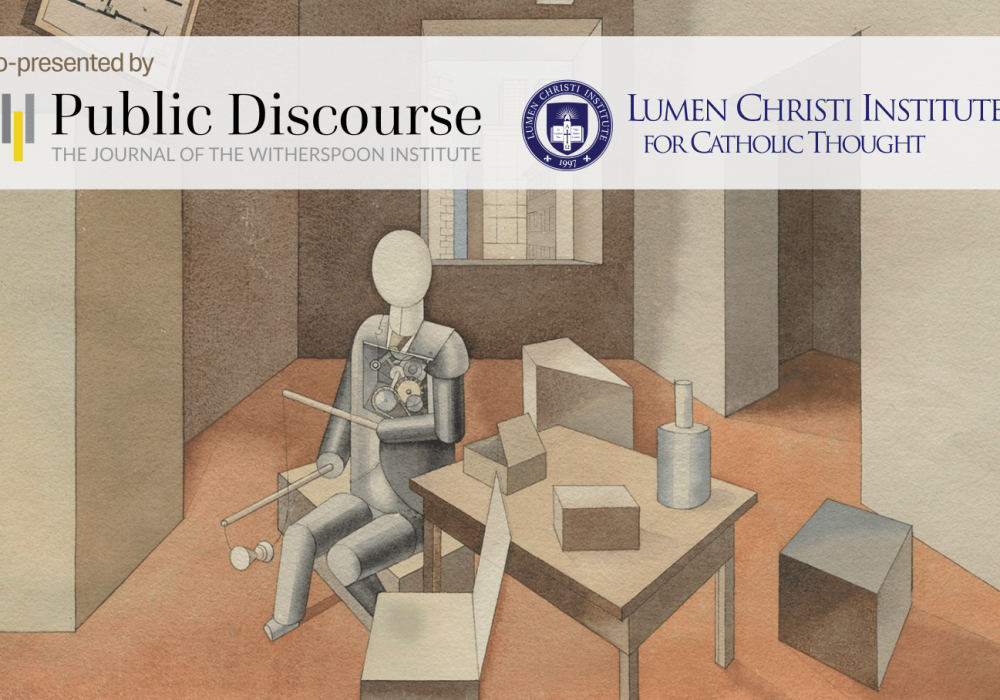5:30 Cocktail and Hors d’Oeuvres | 6:30 Opening Remarks | 6:45 Dialogue and Q&A | 7:30 End
Co-presented by Public Discourse, the online journal of the Witherspoon Institute, dedicated to renewing the culture through thoughtful reflections on education, family, and religion. Supported by Wiseblood Books.
Discounted student tickets are available. Please contact Marial Corona at mcorona@lumenchristi.org for more information on this or any other matter.
“Ideology” is a word in near-ubiquitous use: it is deployed to describe everything from religious identity (‘radical Islamic ideology’) and political principle (‘the contest between woke and MAGA ideology’) to gastronomic preferences (‘the ideology of meat in US culture’).
Does a word used so widely and vaguely still possess concrete meaning? In his new book, What is Ideology?, political theorist Mark Shiffman has studied the history of the concept and identified it as a distinctly modern phenomenon. Shiffman argues that ideological thinking attempts to subject all reality to a narrow and reductive schema in order to produce a redemptive social-political order and engineer a new type of human being. Moreover, he explains how our own imprecise use of the term makes us even more susceptible to ideological control.
To point towards an escape from ideological thinking, Shiffman engages a diverse array of thinkers, from Thomas Hobbes and Karl Marx, to John Adams and Antonio Gramsci, to Ralph Ellison and Hannah Arendt.
On the evening of May 2nd, Mark Shiffman will discuss these topics with the esteemed poet and cultural critic James Matthew Wilson. They will trace the history of the term ideology, discuss its deforming effects on political life and the soul, and suggest how “non-ideological thinking” can be restored by drawing on resources from the classical and Christian traditions of philosophy, theology, art, and literature.



